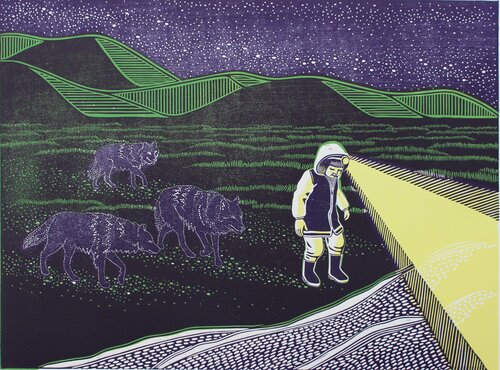In this course, we want to look at how different forms of knowledge production, -practice and -transfer shape human relations to their environments. Different forms of knowledge can be evoked by different agents with different perceptions of the environment and its purpose, may it be local or scientific; based on examination or observation; oral, written or embodied. Based on comparative case studies, we want to showcase how these different forms of knowledge meet, repel, merge or refine each other and which concepts of environment emerge from them respectively. Students of this course will be sensitised to see these different forms and to dismantle the discourses they influence, the power structures they create, the historic traces that emerge from and the future visions they create. By bringing “Environment” and “Knowledge” into dialogue, students get the opportunity to dive deep into different ways of understanding and perceiving landscapes, places and spaces and to discuss whose and which forms of knowledge come into play when talking about, understanding, experiencing or managing them. Even though this course is meant to look first and foremost through an anthropological lens, we also want to use the opportunity to integrate approaches from related disciplines including but not limited to Geography, Sociology, Science and Technology Studies, or Literature.
This seminar will take place in six consecutive 4h online sessions on Fridays mornings from 12 June until 17 July. The course will most likely be facilitated via Zoom and Moodle. The sessions are designed as modules and each of them will cover a different aspect of - or perspective on environmental knowledge. Each of the modules is based on literature which is to be read before the respective session. The texts will be examined on plenary discussions or exercises and supplemented by research insights from the two facilitators. The seminar will be concluded by individual essays from the participants in which they reflect upon a topic of their choice discussed throughout the workshop.
Cover Image:"Even in Darkness, we are never alone" by Marika Echachis Swan (Tla-o-qui-aht/ Nuu-chah-nulth)
When I consider the magnitude of bringing children into this reality at this time, I am overwhelmed with fear. The love in my heart calls out for protection and guidance from forces outside the scope of what I can readily conceive. To Nuu-chah-nulth people, wolves are sacred pathfinders that teach us about family and community. “Even in Darkness,
we are never alone” is a dream for protection for our children in the future they must be ready for.

- Trainer/in: Saskia Brill
- Trainer/in: Martin Fonck Larrain
- Trainer/in: Paul Hempel